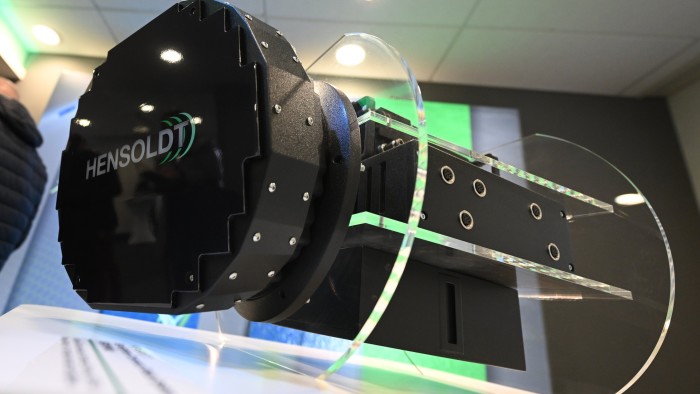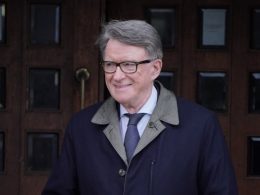Stay informed with free updates
Simply sign up to the Aerospace & Defence myFT Digest — delivered directly to your inbox.
Europe should emulate the US by pushing for more local procurement of military equipment to help boost the region’s defence infrastructure, a leading German contractor has said.
Oliver Dörre, chief executive of radar and sensor maker Hensoldt, said foreign defence contractors in the US had faced increased pressure to source locally since Donald Trump’s election victory, pushing them to partner with American rivals.
“A direct response to Trump’s election is that the call for local content in the US . . . is getting stronger,” said Dörre, who took the helm of the Bavarian defence contractor last year.
He added that German defence groups were developing strong partnerships with US peers as a result, which would help boost sales both in the US and Europe.
Dörre, who worked for the German military and the country’s defence ministry before switching to the private sector 15 years ago, said European governments should respond by making better use of EU rules to boost European suppliers.
“We should call for local content,” he said, arguing it would align the continent with the US and give a boost to the region’s defence capabilities. He added that EU law already permitted member states to bypass the bloc’s free trade rules in certain cases concerning defence and security.
Less than a quarter of the roughly €100bn worth of defence contracts announced by European governments in the 15 months after Russia’s full-blown invasion of Ukraine in February 2022 were signed with local companies, according to the French Institute for International and Strategic Affairs. Of the non-EU procurement, 80 per cent of funds flowed to the US.
Hensoldt, which produces air defence radars, has been a beneficiary of the “Zeitenwende”, or historical turning point, declared by Chancellor Olaf Scholz in 2022 when Europe’s largest economy pledged to create a special €100bn military fund to rejuvenate its military in response to Russia’s assault on Ukraine.
The Berlin-backed company’s shares have nearly tripled since early 2022 and it has amassed a record order backlog of €6.5bn in the first nine months of 2024.
The region’s defence groups are also expected to benefit as Nato members come under increasing pressure from lobbyists to raise the alliance’s target for defence spending from 2 per cent to 3 per cent of GDP, partly in anticipation of Trump’s return as US president.
Dörre did not see the prospect of peace in Ukraine as a threat to midterm revenue and profit growth, saying only about 6 per cent of the company’s sales were going to Ukraine.
“I definitely see a decade, at least a decade, of defence spending ahead of us — no matter if we have peace in Ukraine or not,” he said, adding that even if an end came soon to the conflict, which had acted as a brake on the wider growth of Russia’s military capabilities, “that will require Europe and Nato to build up their arsenal”.
Source link









